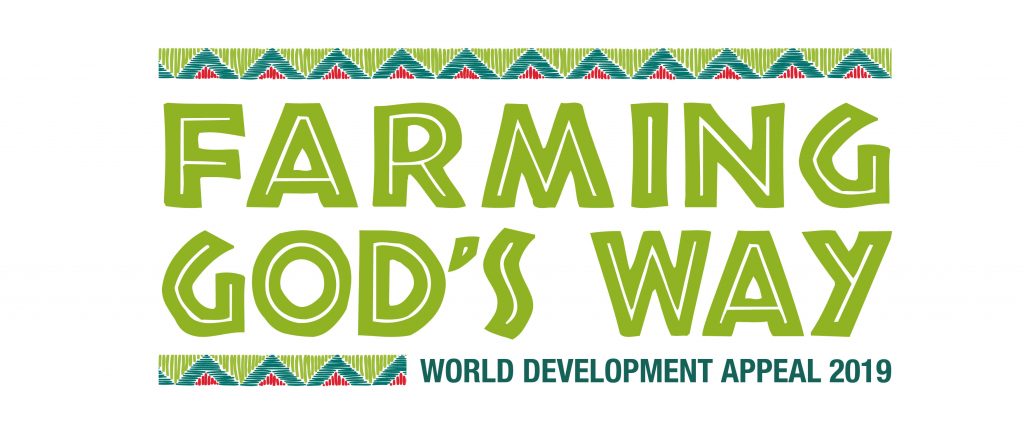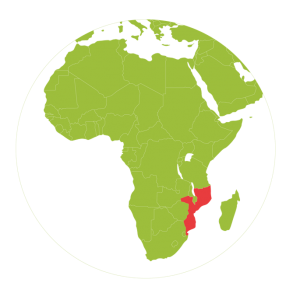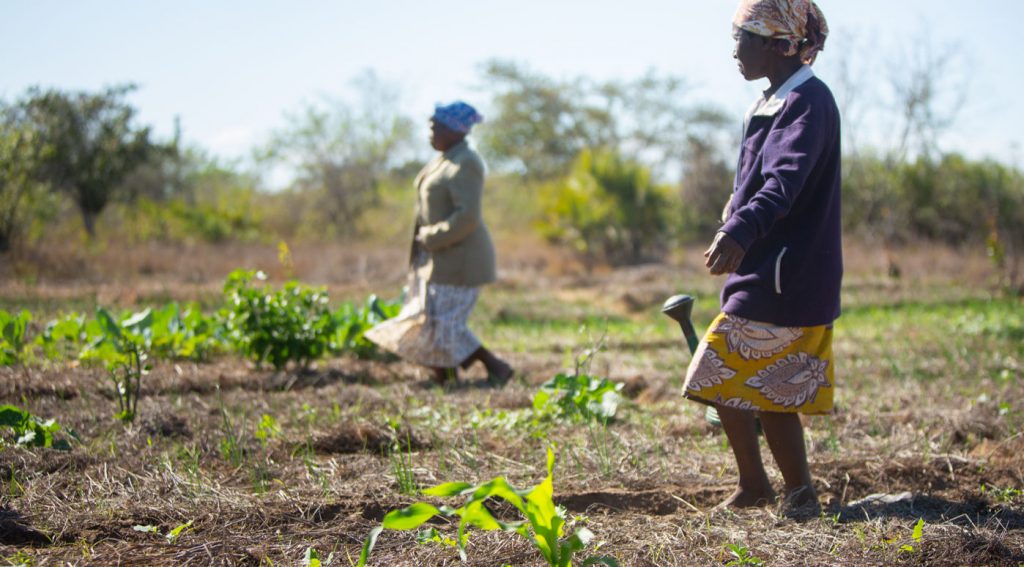 Groomsport Presbyterian
Groomsport Presbyterian
~ A welcoming community of God's people
World Development Appeal

The annual World Development Appeal of the Presbyterian Church in Ireland is really rather remarkable. Year by year, it offers those who comprise Presbyterian congregations across the island of Ireland the opportunity to learn more about and to support the valuable and vital work of sustainable development currently undertaken by our development partners, Tearfund and Christian Aid. Each year the Appeal highlights a particular project which becomes the ‘lead’ or ‘focus’ project for that twelve-month period and ownership of this lead project cycles between our development partners: in 2018, a Christian Aid project was highlighted; for 2019 a Tearfund project will be front and centre. This focus on a particular project gives congregations the opportunity to ‘go deep’ in understanding some of the challenges of sustainable development in a particular location and to see how the partner agency, working with communities there, is seeking address them. A range of materials, including information on the country and project highlighted, is provided to assist congregations in this.
The World Development Appeal, however, also seeks to help congregations within the Presbyterian Church in Ireland broaden their understanding of what the work of sustainable development entails. It aims to provide an insight into what good sustainable development practices look like and how they build, within communities, the capacity of every man, woman, and child to share a vision for their future that is not necessarily dictated by their context, culture, or circumstances and to discover within themselves the resources and resilience to work towards seeing that vision realised. As the Appeal enables congregations to ‘go wide’ in their understanding of sustainable development, so it helps to build up an informed picture of the nature of sustainable development work. A picture of the challenges which it can encounter on the ground; a picture of the obstacles which may have to be overcome; a picture of work that is, by its very nature, long-term; a picture of work that doesn’t hand down ‘quick fix’ solutions but instead builds up from within a community-owned response to shaping the future. A picture where people are raised up to understand that they are shaped and made in the image of a loving Creator, that they are possessed of a dignity and worth because of that, and that even when they find themselves in places and situations that seem very far from God’s plans and purposes for His creation, still He has plans for their welfare, plans “… to give [them] a future with hope.” (Jeremiah 29:11)
Seed planting
The 2019 Appeal encourages you to discover and support Tearfund’s partner, CEDES (Comité Ecuménico Para O Desenvolvimento Social), in the work being done to address poverty and food insecurity due to natural disasters and problem investment.
A fragile and dangerous place
Mozambique: Prone to natural disasters. 1.5 million people affected by drought. 2.1 million people without sufficient access to food. 27% of the population unemployed. An uneasy peace between government and opposition forces.
Inhassoro district lies within the cyclone region of Mozambique. Even if the cyclones do not come, communities in the area are vulnerable to strong winds and either heavy rains, which can cause flooding, or low rainfall which contributes to drought-like conditions.
Eking out an existence through subsistence farming in this fragile and dangerous place is hard work but through Tearfund’s partner, CEDES (The Ecumenical Committee for Social Development), communities are discovering within themselves the resources and the capacity to do more than that.
They are, together, learning how to adapt their farming methods so that they can be more resilient in the face of the challenges that come their way. And conservation agriculture techniques
are not only bearing fruit in terms of the harvest that is reaped from the land. They are also bearing fruit in the lives of families, communities and neighbourhoods. For people are being empowered to understand themselves as those with the agency to use the resources they have to shape a more hopeful and sustainable future. A future where one can dream of more than merely ‘existing’.
CEDES
Through CEDES, and under the aegis of Tearfund, Horácio Valoi was trained as an ‘umoja’ facilitator. ‘Umoja’ is a Swahili word meaning ‘togetherness’ and the ‘umoja’ process sees a trained facilitator lead community groups in Bible studies. Through the studies, members of that community are enabled to focus on identifying and using the resources they have to lead and control their own development. This removes the sense of disempowerment that can accompany being dependent on an external donor.
Tearfund also recognises the potential within local churches to take a lead on development issues within the communities in which they are located. Through the church and community transformation process, ‘umoja’ helps churches to understand integral mission. Local churches come to see how important
it is that they look after the whole of people’s lives, spiritual and physical, in the communities they serve. They even begin to identify and take the lead on sustainable development initiatives.
The World Development Appeal video this year tells the story of how conservation agriculture or ‘farming God’s way’ has been transformative for the community with which Horácio works. Working with family units, households have been trained in sustainable farming techniques which generate a small surplus income. This can then be reinvested through self-help groups which, in turn, generate small businesses in the neighbourhood. Relationships within families are improved. Relationships grow between families and the church as people interact in the Bible studies. And the community is developed from within, becoming an example others can learn from.
Background on Mozambique
Mozambique was formed as a Portuguese colony. In 1975, after over ten years of war, Mozambique gained independence. The country then suffered years of civil war between two political groups, RENAMO and FREELIMO, from 1977-1992. After nearly 20 years of peace, in 2013, RENAMO declared it was withdrawing from the 1992 peace agreement. From 2012 to 2016 RENAMO fighters retreated to the bush causing main roads to be accessible only by armed convoy and 11,000 people were displaced. In 2017 a truce was agreed between RENAMO and FREELIMO and another peace deal signed in 2018. October 2019 will see a general election which Mozambicans hope will deliver long term peace.
In the Northern province of Mozambique, Cabo Delgado, Al Shabaab militants are operating, making it very difficult for NGOs to carry out their work there. Tearfund has been working in Mozambique for 30 years. 
The capital is Maputo in the South and there are ten provinces. Currently, 80% of Mozambicans live on less than $2 a day, and it is ranked 180 out of 188 on the UN Human Development Index. Over half of Mozambicans don’t have access to clean water. 56% of the population is Christian with Evangelical Christians the fastest-growing religious group.
As a country lying on the tropics, bordered by the Indian Ocean, Mozambique is very vulnerable to natural disasters such as floods, cyclones and droughts. Currently, areas of the country are suffering from severe drought while still recovering from the impact of Cyclone Idai. Food security is a big issue against the backdrop of these natural disasters. Tearfund is working to build in disaster risk reduction and greater resilience to all its programmes in Mozambique.
Tearfund has a history of HIV/Aids Work in Mozambique, especially in the central provinces which act as a transport corridor from the port town, Beira, to much of south-eastern Africa. In recent years Tearfund has focused on building the capacity across our Mozambican partners to deliver Church Community Transformation work including both Umoja and contextualised versions of Umoja. In March 2019 Tearfund appointed a new country director, Edgar Jone. Edgar’s first challenge was to coordinate our Cyclone Idai response through partners on the ground.
Tearfund’s partner, the Ecumenical Committee for Social Development (CEDES), was formed through church denominations coming together to support and repatriate refugees from the civil war. Once this work was completed, they moved into undertaking development work and improving infrastructure in 1998. CEDES is delivering both Tearfund’s disaster response to Cyclone Idai as well as doing long-term development work. In the latter, CEDES utilises Umoja and Self-Help Groups as part of their Church Mobilisation programme with local churches and also contextualised Umoja with farming co-operatives incorporating conservation agriculture techniques and promoting Self Help Groups. Great emphasis is put on using locally available resources ensuring beneficiaries are self-sufficient.
Conservation Farming Principles
Co-operatives are formed from the local community. They share one large plot of land broken down into several beds for each person. Every time they meet together, they carry out a Bible study and often participate in a savings and loans group (Self Help Group). In addition to this, CEDES staff provide training on conservation farming techniques and supply some seeds to help the co-operatives farm. The produce that the co-operative grows is then used by the families involved. It can also be sold in the market or to people who visit the farms to buy food, generating income. Conservation farming has enabled the communities to grow food outside of the traditional growing season in a semi-arid climate, transforming sandy ground to rich earth where crops grow quicker and produce higher yields.
Increased crop yields come from:
1. Maintaining a covering of mulch, or ‘God’s blanket’, made from peanut leaves, which are high in zinc, and not burning last harvest’s plant debris. This maintains water content in the soil (especially useful when rains are poor) and reduces soil erosion.
2. No ploughing – it is expensive. Farmers are shown how to preserve the natural soil structure so it absorbs water better. Instead of ploughing, they dig basins or beds for planting seeds.
3. Planting crops with precise spacing to give plants the best chance to survive, and providing them with nutrition using natural fertiliser from chickens or bats. Crop rotation also cuts down on pests without the use of harmful chemicals.
4. Regular weeding when the seedlings planted are still small – this saves time and energy in the long run.
5. Watering twice a day using water from hand-dug wells on site
These principles are radically different from the western techniques farmers have been using for generations. The tools needed are so simple: a hoe, a measuring stick, measuring string, fertiliser or manure, and seed. Because of this, it is often met with scepticism, yet it is ecologically friendly, and it benefits the farmers. When the principles are applied well, crop yields will increase, and actually keep improving over the years meaning whole families who are trained in this method and follow the principles well are released from the cycle of poverty and can survive the challenges of climate change.
Read more on the Presbyterian Ireland website.

